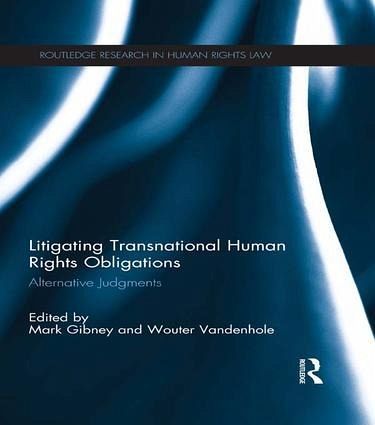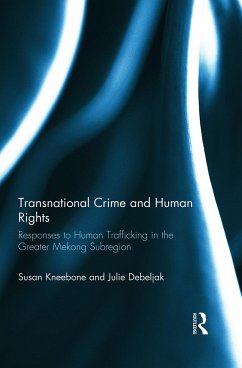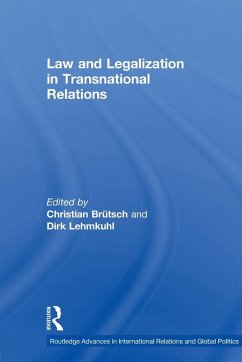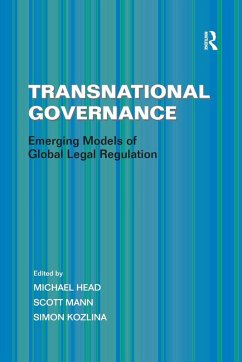
Litigating Transnational Human Rights Obligations
Alternative Judgments
Herausgeber: Gibney, Mark; Vandenhole, Wouter

PAYBACK Punkte
31 °P sammeln!
Human rights have traditionally been framed in a vertical perspective with the duties of States confined to their own citizens or residents. Obligations beyond this territorial space have been viewed as either being absent or minimalistic at best. However, the territorial paradigm has now been seriously challenged in recent years in part because of the increasing awareness of the ability of States and other actors to impact human rights far from home both positively and negatively. In response to this awareness various legal principles have come into existence setting out some transnational hu...
Human rights have traditionally been framed in a vertical perspective with the duties of States confined to their own citizens or residents. Obligations beyond this territorial space have been viewed as either being absent or minimalistic at best. However, the territorial paradigm has now been seriously challenged in recent years in part because of the increasing awareness of the ability of States and other actors to impact human rights far from home both positively and negatively. In response to this awareness various legal principles have come into existence setting out some transnational human rights obligations of varying degrees. However, notwithstanding these initiatives, judicial institutions and monitoring bodies continue to show an enormous hesitancy in moving beyond a territorial reading of international human rights law. This book addresses the issue in an innovative and challenging way by crafting legally sound hypothetical "judgments" from a number of adjudicatory fora. The judgments are based on real world situations where extraterritorial or transnational issues have emerged, and draw on existing international human rights law, albeit a progressive interpretation of this law. The book shows that there are a number of judicial and quasi-judicial systems where transnational human rights claims can, and should be enforced. These include: the World Trade Organization; the International Court of Justice; the regional human rights monitoring bodies; domestic courts; and the UN treaty bodies. Each hypothetical judgment is accompanied by detailed commentary placing it in context in order to show how international human rights law can address issues of a transnational character. The book will be of interest to human scholars and lawyers, practitioners, activists and aid officials.














